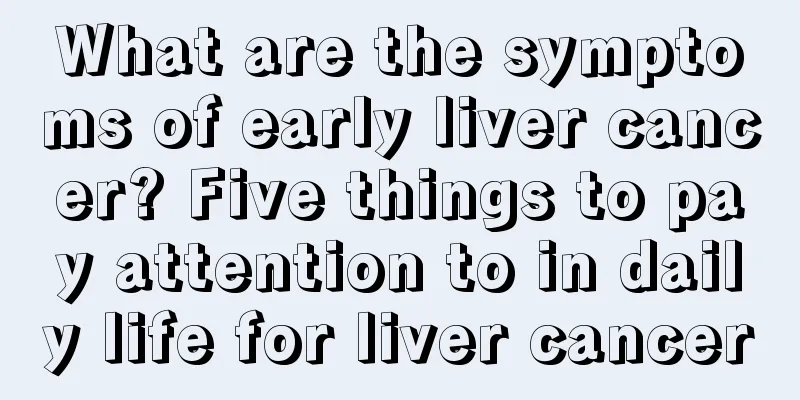Do you know the clinical manifestations of Helicobacter pylori infection?

|
Helicobacter pylori infection is a bacterium that can grow in the stomach and can cause great harm to the stomach, such as gastritis, gastric ulcers, etc., and in severe cases can even cause gastric cancer. The stomach is a very important organ in our body. When any discomfort occurs, we must check the cause and not let any disease harm our body. Let me now introduce you to Helicobacter pylori infection. Caused diseases Helicobacter pylori disease includes gastritis, peptic ulcer, lymphoproliferative gastric lymphoma, etc. caused by Helicobacter pylori infection. harm The poor prognosis of Helicobacter pylori disease is gastric cancer. Gastric cancer is one of the most common malignant tumors worldwide and ranks second among the causes of cancer death. In our country, about 160,000 people die from gastric cancer every year. Clinical manifestations The prevention and control of gastric cancer has attracted increasing attention. Studies have shown that Helicobacter pylori lives in the pyloric area of the human stomach and is one of the most common bacterial pathogens. More than half of the world's population has been infected with Helicobacter pylori, and in some countries almost 90% of the population has been infected with this bacterium. People are usually infected at a young age, reaching 50% by the age of 5. This bacterial infection first causes chronic gastritis, and then leads to gastric ulcers and gastric atrophy, and in severe cases develops into gastric cancer. According to statistics, the incidence of atrophic gastritis and gastric cancer is high among people who are first infected with Helicobacter pylori at an early age, and there is a parallel relationship between Helicobacter pylori infection and gastric cancer mortality. Helicobacter pylori parasitizes in the gastric mucosal tissue. 67% to 80% of gastric ulcers and 95% of duodenal ulcers are caused by Helicobacter pylori. Common symptoms of patients with chronic gastritis and peptic ulcers are: upper abdominal fullness, discomfort or pain after eating, often accompanied by other adverse symptoms such as fever, bloating, acid reflux and loss of appetite. Some patients may also experience recurrent severe abdominal pain, small amounts of upper gastrointestinal bleeding, etc. Based on this, experts believe that early detection of Helicobacter pylori infection and timely and effective use of antibiotics to kill Helicobacter pylori are of great significance for the prevention and control of gastric cancer. Prevention Medical scientists believe that it is not difficult to completely eliminate Helicobacter pylori. After 1 to 2 weeks of treatment, 90% of people infected with the bacteria can have Helicobacter pylori completely eliminated from their bodies. They suggested that a nationwide survey should be conducted, and at least people who have undergone gastric surgery, have had gastric disease, or have relatives with gastric cancer should be tested for Helicobacter pylori, and those infected should be given bactericidal treatment, which would hopefully control gastric cancer. |
<<: Do you know the effects and functions of gentian?
>>: Sequelae of eye bag excision, these failure manifestations should be taken seriously
Recommend
What is the scope of radical radiotherapy for nasopharyngeal carcinoma?
What is the scope of radical radiotherapy for nas...
Bamboo fiber underwear
Underwear is something we wear often. There are m...
How much does colon cancer surgery cost
How much does bowel cancer surgery cost? Bowel ca...
Can thyroid cancer lung metastasis be cured? What should I do if thyroid cancer lung metastasis occurs?
We all know that thyroid cancer is a disease that...
11 common signs of lung cancer patients
Lung cancer patients generally do not have any sp...
What is the best treatment for bladder cancer?
What is the best treatment for bladder cancer? 1....
Does bone cement have any side effects? What is the significance of bone cement to the human body?
Bone cement is used to repair trauma and fill dis...
Can bone aging be restored?
As we age, our bones will actually age. This is n...
Diagnosis and staging of lymphoma
Lymphoma is usually diagnosed through examination...
How to diagnose melanoma
I believe everyone has a certain understanding of...
What are the symptoms of liver cancer in the last month of advanced stage?
The symptoms of advanced liver cancer in the last...
Is it good to eat too much peach gum?
Eating peach gum is good for your health, and it ...
Knee pain from hiking
There are many ways people can choose to exercise...
The symptoms of uterine cancer are introduced to you in detail by our experts
Uterine cancer is a common oncology disease. In l...
How to increase white blood cells? It turns out you can eat these
Low white blood cell count not only harms human h...









